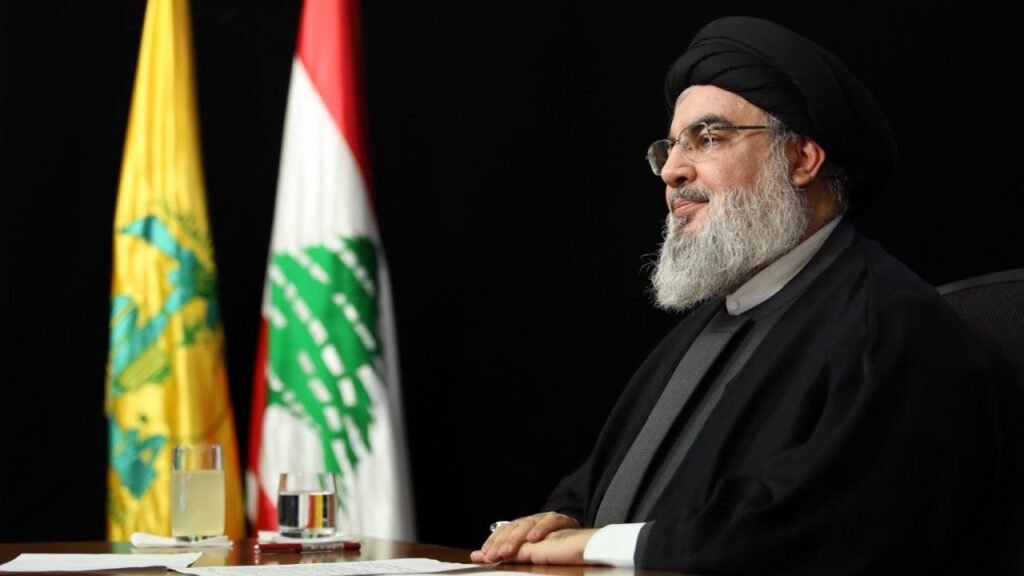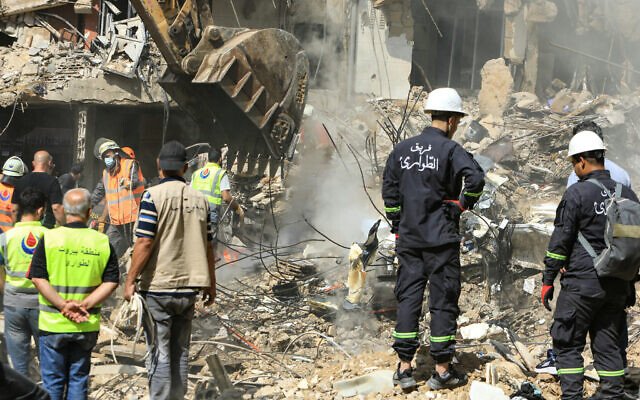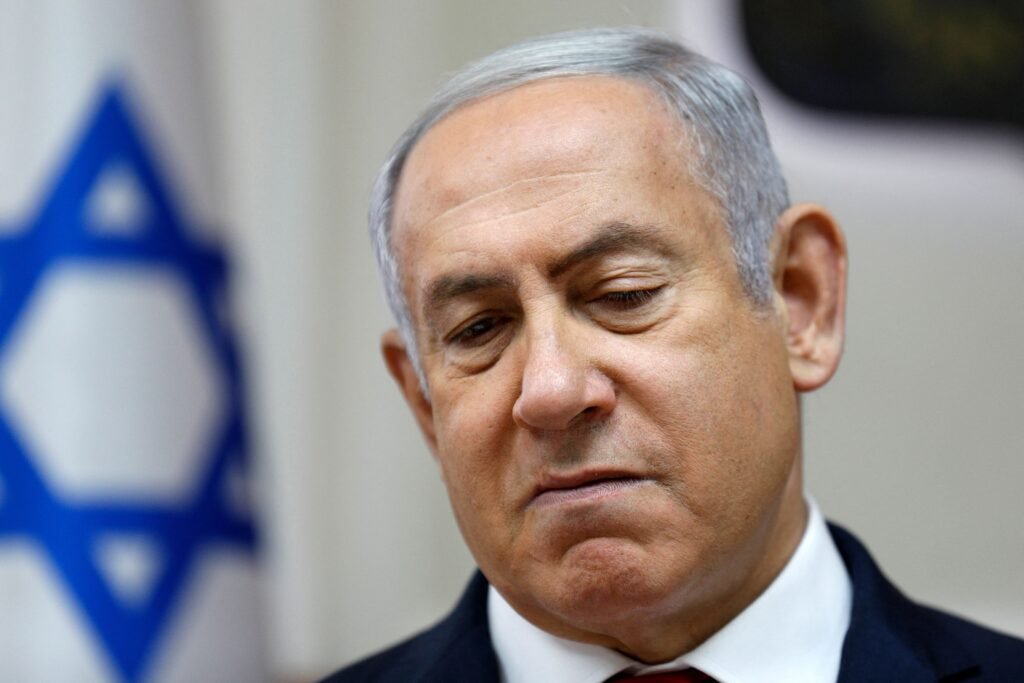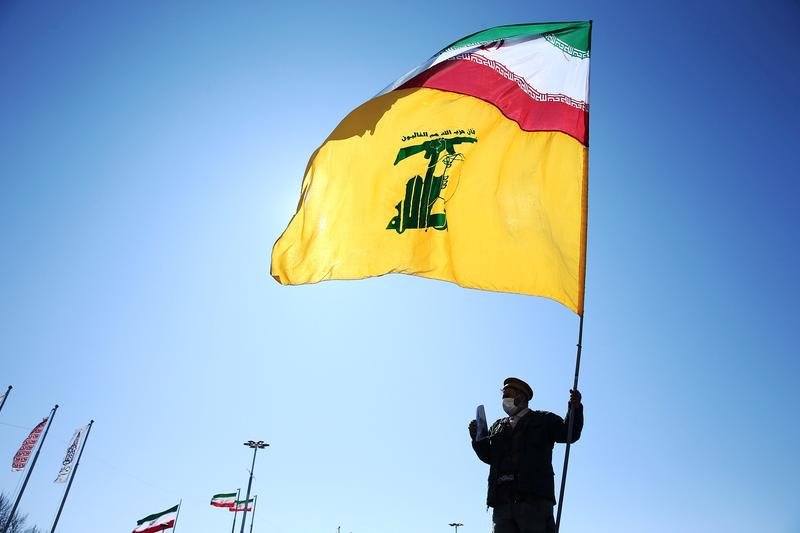Lebanon in Flames: Netanyahu’s Aggressive Stance Pushes Middle East Closer to War
Following Israel’s massive airstrikes on the densely populated Dahiyeh district in Beirut, Hezbollah’s leader Hassan Nasrallah and key commanders were killed, pushing the region closer to a major escalation. Israeli Prime Minister Benjamin Netanyahu personally ordered these strikes, which many view as a calculated attempt to provoke Hezbollah and its backer, Iran, into a full-scale war. The attacks reflect Israel’s intent to escalate regional tensions, with little regard for the repercussions.
The United States, while publicly distancing itself from the operation, was reportedly informed of the plan in advance, and the missiles used were American-made.

Although U.S. officials express support for peace, they continue to supply Israel with military aid, emboldening Netanyahu’s campaign. The Western powers, led by President Joe Biden, have repeatedly provided cover for Israel under the guise of “self-defense,” while thousands of Palestinian and Lebanese civilians suffer the consequences.
Western Hypocrisy and Unchecked Support for Israel
Western governments, including those in the U.S. and Europe, pay lip service to peace, occasionally calling for temporary ceasefires, yet continue to supply Israel with weaponry. Their hollow appeals do nothing to curb the violence but instead enable Israel to carry out its offensive campaigns. As missiles rain down on Lebanese towns and villages, Western support remains steadfast, disregarding the devastating toll on human lives.

The only meaningful way to halt Netanyahu’s military machine would be to suspend arms sales to Israel—an action Western powers refuse to consider. Instead, they provide billions of dollars in aid, even if it risks igniting a broader regional war. Their ongoing support reveals a preference for geopolitical control over regional stability, even at the cost of immense human suffering in Lebanon, Gaza, and beyond.
Israel’s Double Standards on “Terrorism”
While Israel and its Western allies label Hezbollah and Palestinian groups as “terrorist organizations,” it is Israel that exercises unchecked power, bombing and displacing civilians across borders. Protests around the world denounce Israel as a “terrorist state” for its unrelenting aggression, from mass expulsions of Palestinians to airstrikes on Lebanon’s civilian areas. Yet, Netanyahu’s government rejects this label, insisting on a narrative of self-defense while using its military might to oppress and control.
Israel’s latest airstrikes targeted areas teeming with civilians, with over 800 deaths reported within a week and at least 250,000 forced to flee. In the Bekaa Valley, Israeli bombs have left factories, homes, and infrastructure in ruins, displacing families and devastating communities. A New York Times report described the aftermath: “Factories and homes are reduced to rubble, roads are strewn with debris, and once-green landscapes are shrouded in dust.”

Iran’s Measured Approach Amid Escalation
Contrary to the aggressive posturing of Western media, Iran has shown considerable restraint, despite Israel’s provocations. The narrative in much of the Western press unfairly paints Iran as an aggressor, while ignoring Israel’s relentless campaigns. Iran and Hezbollah have both resisted escalating the conflict, opting instead for cautious responses aimed at minimizing further instability. Despite this, Netanyahu’s inflammatory rhetoric at the United Nations makes clear his intent to expand the conflict.
In a speech to the UN, Netanyahu vowed to continue Israel’s military operations, openly threatening Hezbollah and Iran. “As long as Hezbollah chooses the path of war, Israel has no choice but to neutralize this threat,” he stated. He further warned, “There is nowhere in Iran that Israel cannot reach, and this extends across the Middle East.” These statements reflect a government resolutely committed to conflict, disregarding diplomatic avenues in favor of military solutions.

Preparing for Escalation: IDF Mobilization and Civilian Displacement
The Israeli Defense Forces (IDF) have issued warnings to residents of Dahiyeh to evacuate, signaling the likelihood of intensified attacks in the coming days. IDF spokesperson Nadav Shoshani confirmed that Israeli forces are on “high alert” and prepared for a wider escalation, should Hezbollah retaliate. With its forces ready for broader conflict, Israel appears poised to launch further strikes, showing no intent to de-escalate.
Meanwhile, regional powers, including Iran, continue to advocate for restraint, aware of the catastrophic consequences a regional war could have. European nations, likewise wary of the risks, are caught between diplomatic caution and their ties to the U.S., which staunchly backs Israel’s aggressive stance. However, despite warnings from regional and international actors, the situation inches ever closer to the large-scale conflict that many fear.
A Call to End Western Imperialism in the Middle East
In the face of this escalating crisis, calls for an end to Western imperialism in the region have intensified. Activists and commentators alike argue that it is not enough to appeal to the Western powers for peace; true change requires a restructuring of power dynamics that currently allow Netanyahu and his allies in the West, from Biden to European leaders, to act with impunity. The need to challenge and dismantle this power structure has become more urgent than ever as regional stability hangs by a thread.
For the people of Lebanon, Gaza, and beyond, the road to peace will not come from half-hearted appeals to power but from a collective movement against imperialist forces that perpetuate this cycle of violence. Until real accountability is demanded, the suffering will continue, and the Middle East will remain trapped in a cycle of devastation driven by geopolitical interests over human lives.

